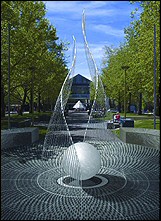Come Play in the Great Game
contributed by Michael Hall
At the annual Tuggeranong Sports and Picnic at Easter in 1917, the well-known grazier Everard Crace of Gungahleen was a surprise visitor, announcing his intention to enlist in the Sportsman’s Unit. He was looking for some mates to join him. He found none there, but enlisted the following day anyway. It was argued that many members of sports clubs would prefer to “mix and live and fight alongside other sportsmen” to help win “the Great Game”. The Sportman’s Unit was a recruiting tool reputedly organised by Reg ‘Snowy’ Baker. An all-round sportsman, he represented New South Wales in a variety of sports and Australia in Rugby Union and boxing, in which, as a middleweight, he won the silver medal at the 1908 Olympics. During World War 1 he had turned boxing promoter, owning a half-share in Sydney Stadium at Rushcutters Bay. Although quite young at the outbreak of war he never served - a car accident in 1915 apparently rendered him medically unfit. Nonetheless, boxing matches at his stadium proved fertile recruiting grounds for the war effort. Try as he might, Crace did not go with them. At the beginning of the war he had chaired a patriotic sports day committee for the Federal Territory and later campaigned heavily for conscription through the Federal Capital Referendum Committee. In 1917 he was 42 years old and was found to be medically unfit. Unlike Snowy Baker though, Everard Crace was determined to serve his country. At that point, he apparently said, that if couldn’t fight he would cook for the men who did fight. And he did. Crace served for the duration of the war as a company cook in the 40th Battalion. Afterwards he became president of the Canberra Empire Service League and helped form the local branch of the Returned Soldiers and Sailors Imperial League of Australia (later the RSL). |  |

